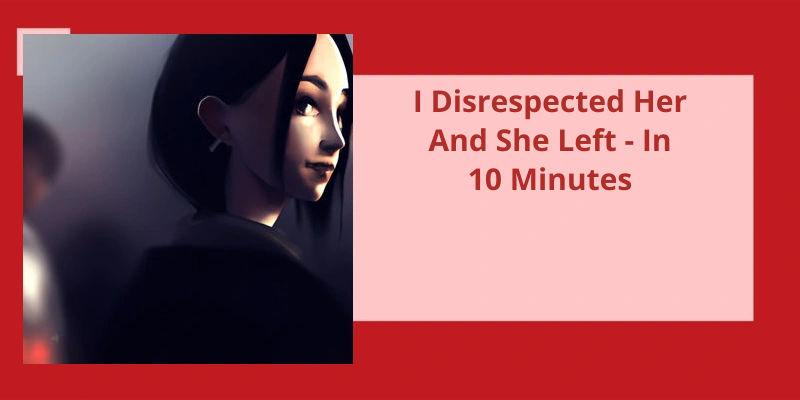We've all been there. You're just living your life, minding your own business, when someone comes out of nowhere to mock you. It's an unpleasant experience that can leave you feeling embarrassed, frustrated, and even angry. But what's worse isn’t knowing how to respond. In the moment, it can be difficult to come up with a quick and witty comeback, leaving you feeling defeated and powerless. That's why having a few good comebacks in your arsenal can be a game changer. With the right words at your disposal, you can turn the tables on your mocker and come out on top. So, whether you're dealing with a snarky coworker, a rude classmate, or a family member with a sharp tongue, read on for some of the best comebacks to shut down anyone who dares to mock you.
What Does It Mean When Someone Was Mocking Me?
Mocking is a form of verbal or nonverbal aggression, where someone intentionally insults, belittles, or ridicules you in front of others with the intention of causing harm. It can come in many different forms, such as making fun of your accent, imitating your mannerisms or even making fun of your appearance.
Being mocked can be a very hurtful and humiliating experience, especially if it’s done in public or in front of others. It can leave you feeling exposed and vulnerable, as if your flaws and vulnerabilities are being used against you. This type of behavior can also lead to low self-esteem and social anxiety, making it difficult for you to interact with others or speak up for yourself in the future.
There are different reasons why someone might mock you. They might be jealous of you, or they might feel insecure about themselves and use mocking as a way to put you down in order to feel better about themselves. In some cases, they might be trying to get your attention or trying to get a reaction out of you. Whatever the reason may be, it’s important to understand that their behavior isn’t a reflection of you, but rather a reflection of their own insecurities and internal struggles.
Tell them how their behavior is making you feel, and ask them to stop. It’s important to do this in a calm and assertive manner, without getting defensive or aggressive yourself. If the person continues to mock you, it might be best to distance yourself from them and seek support from friends or family who can help you navigate the situation.
When faced with mockery, it can be difficult to know how to respond. However, there are several tactics you can use to stand up for yourself and diffuse the situation. One option is to confront those who’re mocking you, which can be intimidating but may help resolve the issue. Alternatively, telling them to stop or walking away can also be effective strategies. No matter how you choose to respond, it’s important to stay calm and act confidently to de-escalate the situation.
How Do You Respond to a Mocker?
Being mocked or ridiculed by others can be a difficult experience to endure, especially when it’s done repeatedly. Responding to a mocker can be challenging, but there are several ways to address the situation effectively. One approach is to confront those who’re mocking you, which may seem daunting at first, but can help defuse the situation. Sometimes, by simply addressing the person or group and acknowledging the mocking behavior, they may stop out of embarrassment or shame.
Staying calm is another critical aspect of responding to a mocker. It’s easy to become upset, angry or defensive when someone is mocking us, but those reactions can often escalate the situation. Instead, it’s important to stay calm and composed, which can diffuse the tension and help keep things from getting out of hand.
Sometimes, the best thing to do is to simply remove yourself from the situation. This can be done politely or firmly, depending on the situation. Walking away doesn’t signify weakness or submission, but rather that you’re choosing not to engage with the mocker any longer. It’s important to remember that responding to a mocker isn’t about winning or losing, but rather about taking the high road and maintaining your sense of dignity and self-respect.
Strategies for Handling Mocking or Bullying in the Workplace or School Environment
- Stay calm and composed
- Don’t react emotionally
- Try to understand the motivations of the bully
- Document any incidents
- Seek support from friends, family, or a counselor
- Talk to a supervisor or authority figure
- Consider filing a complaint or grievance
- Explore legal options, if necessary
It’s important to recognize the harmful nature of mocking and understand the impact it can have on individuals. Whether in personal relationships or professional settings, mocking can be a form of disrespect that can damage trust and hinder progress. In the following sections, we will explore the different types of mocking and how it can be addressed in various contexts.
Is Mocking a Form of Disrespect?
When we mock someone, we aren’t only making fun of them but also directly attacking their self-esteem and confidence. It’s a form of bullying and can cause emotional harm to the person being mocked. Mocking can lead to feelings of inferiority, depression, and anxiety in individuals, which can ultimately affect their quality of life.
It isn’t uncommon to see mocking and ridicule of marginalized groups, such as those who identify as LGBTQ+ or people with disabilities. This type of mocking perpetuates harmful stereotypes and can lead to further stigmatization and discrimination against these groups.
Mocking is no laughing matter, and we must all take responsibility for our words and actions. It’s crucial to be mindful of how our words can impact others and to speak with kindness and consideration. We must work together to create a culture that values respect and empathy, even when we disagree with others. Remember, behind every person we mock, there’s a real human being with feelings and emotions just like us. If we want to create a society that’s healthy and vibrant, we must learn to treat each other with the respect and dignity we all deserve.
Source: Is mocking someone disrespectful? – Quora
Mockery can be a great way to lighten the mood and provide entertainment, but it’s important to remember that it can also be hurtful if taken too far. In this article, we will explore the different types of mockery and how they can impact individuals and society. We will also discuss when humor crosses the line and turns into outright bullying. So, let’s dive in and examine the complex world of mockery.
What Is an Act of Mockery?
In more serious settings, mockery may have a sharp and biting edge, with a goal of exposing hypocrisy or revealing uncomfortable truths. It can also be cruel and hurtful, when directed towards individuals who may be vulnerable or marginalized.
The Effects of Mockery on Mental Health
Mockery is the act of ridiculing, taunting, or making fun of someone. It’s a negative impact on mental health, causing emotional distress, anxiety and low self-esteem. Being the subject of mockery can lead to depression and feelings of isolation. It’s important to recognize the damage that mockery can cause and to take steps to prevent it from happening. Encouraging kindness, empathy, and respect can help foster a healthy environment and promote positive mental health.
Changing the topic from political satire to the observation of birds, it’s easy to appreciate the subtle ways in which tone can impact how something is perceived. In literature, a mocking tone can be used to belittle or criticize a character, conveying the narrator’s biases and opinions. But what about in everyday life? Let’s explore some examples of how mocking tones can be used in conversations and interactions.
What Is an Example of a Mocking Tone?
Mocking is a form of ridicule or satire, often using humor and sarcasm to make fun of someone or something. It’s a tone that’s often used in writing, such as in the example above, but can also be used when speaking.
This might involve using exaggerated language or tone to make a point, or making light of a serious issue in order to highlight it’s absurdity. Mocking can also be directed towards societal norms or expectations, or towards institutions like religion or government.
It can be used in writing, speech, and art to highlight absurdity, criticize societal norms or challenge beliefs. While it can be a powerful tool for critique, it’s important to use it responsibly and with sensitivity towards others.
Examples of Famous Literature or Media That Use a Mocking Tone.
There are several examples of literature and media that use a mocking tone, such as Mark Twain’s “The Adventures of Huckleberry Finn,” George Orwell’s “Animal Farm,” and Jonathan Swift’s “A Modest Proposal.” These works use sarcasm, irony, and humor to expose and criticize societal flaws, often targeting individuals or institutions believed to be deserving of contempt.
Conclusion
In conclusion, a good comeback for someone mocking you requires quick-thinking, wit, and confidence. It’s important to keep the tone of the response light-hearted and humorous while simultaneously delivering a subtle blow to the mocker's ego. One must refrain from stooping to their level and instead find ways to turn the tables and make them the butt of the joke. Ultimately, the key is to remain cool, calm, and collected in the face of insults and not let them get the best of you.






